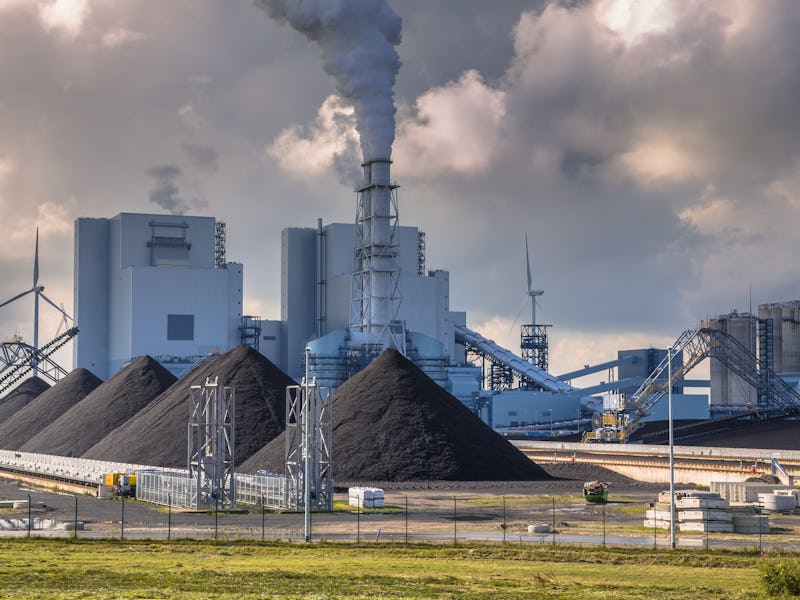Coal just became expensive, and renewables might benefit
Coal is now the world's most expensive fossil fuel, and renewables keep getting cheaper. The job market is primed for a change.

The price of a barrel of oil is currently down to just over $20—from around $60 just months ago—due to a large surplus caused by Russia and Saudi Arabia increasing production as the countries fight for market share. This has caused coal to officially become the most expensive fossil fuel in the world. The coal industry was already on its way out, and this development could escalate its decline, but there's an opportunity to keep coal workers employed by moving them to the growing renewable energy sector.
According to Bloomberg, Australia’s Newcastle coal was at $66.85 per metric ton on Friday, which is the equivalent of $27.36 per barrel of oil. Brent oil futures ended at $26.98 a barrel—putting it below the price of coal. On top of Saudi Arabia and Russia creating a major surplus of oil, the coronavirus outbreak has caused demand for oil to decrease as flights are canceled and people are driving less.
With the coal industry struggling to stay competitive, its price suddenly being the highest among fossil fuels could have a significant impact on the industry. It's a lot harder to sell coal when it's no longer one of the cheaper options for producing energy.
Around 15 percent of America's coal fleet was retired between 2017 and 2019 while the Trump administration said it was saving the industry. That was part of a longterm trend of coal plants shutting down, and the trend is expected to continue. Meanwhile, renewable energy continues to fall in price, and it's gotten to the point renewables are starting to become cheaper than fossil fuels.
As we reported in February, the United States has seen a 167 percent increase in the number of solar jobs since 2010, and the price of a residential solar system has decreased by more than half since then. Wind is also on the upswing, and it recently became the dominant source of renewable energy in the United States. Though we're losing jobs in coal, we could keep people employed by moving them into the growing renewable energy industry.
There are already a lot more jobs in renewable energy than there are in the fossil fuel industry. Last year's Clean Jobs America report found nearly 3.3 million Americans work in renewable energy, which is about three times as many people as the fossil fuel industry. Furthermore, a study from February found that there could be 35 million jobs in renewable energy worldwide by 2050.
See also: The green new deal would create nearly 30 million jobs — study
Burning coal produces about 30 percent more carbon dioxide than burning gasoline and about twice as much as burning natural gas. Beyond the fact the renewable energy industry is growing and is now a major job creator, it's extremely important that we get off of coal and other fossil fuels if we want to prevent the possibly catastrophic effects of climate change. If the economy is your main concern, keep in mind that experts say not doing anything to stop climate change would be a lot more expensive than doing something about it now.
The Inverse analysis
You won't find us mourning the death of the coal industry, because it's terrible for the planet, and there is plenty of opportunity for us to move people who are currently working in coal into renewable energy jobs. The renewable energy industry is growing fast, and it's clearly the way of the future, so it makes no sense to try to save the industries of the past that continue to do harm today. It's like being one of the people who tried to save the asbestos industry in the 1990s after we learned it was giving people cancer. It's time to move forward and move on.